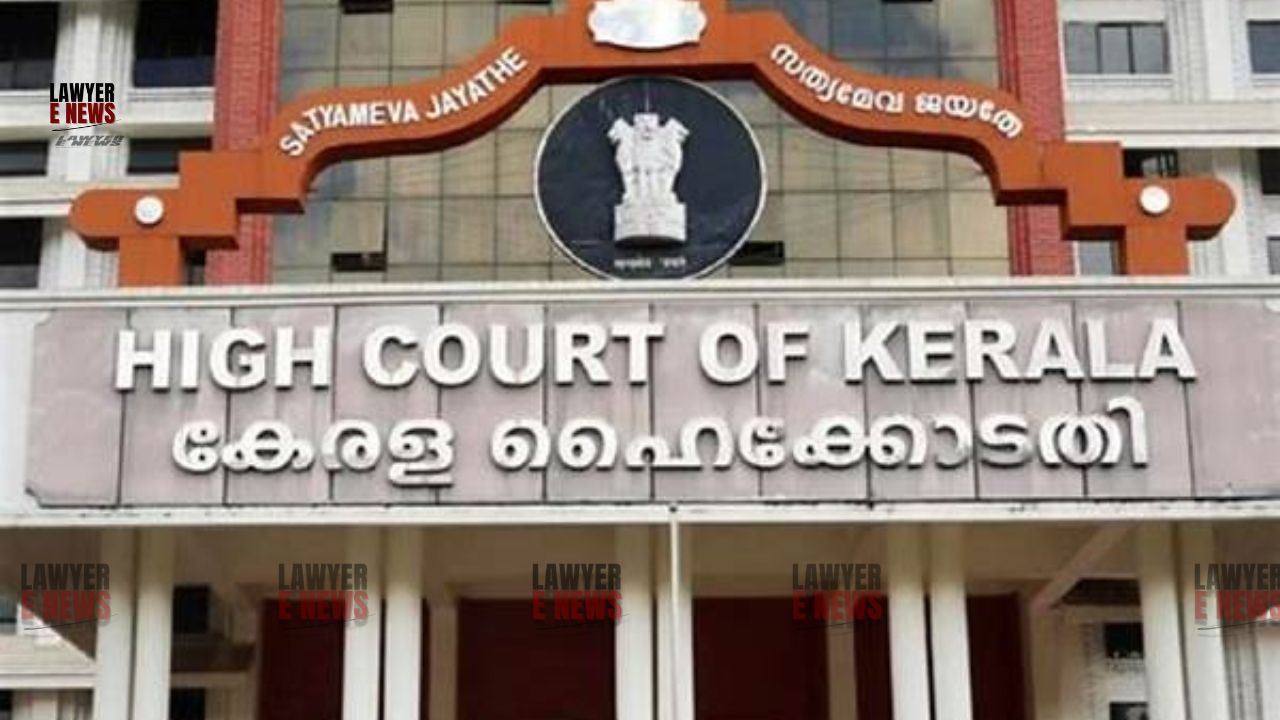-
by Admin
15 February 2026 2:36 AM



"When the investigation is complete, bail must not be withheld as a form of punishment. Liberty under Article 21 demands that courts prioritize personal freedom unless there is compelling justification for denial." – Kerala High Court, Justice C.S. Dias. On November 18, 2024, the Kerala High Court, in Bail Application No. 8174 of 2024, granted bail to Anil Kumar K.V., an accused charged under the Indian Penal Code, 1860 (IPC) and the Protection of Children from Sexual Offences Act, 2012 (POCSO Act). The petitioner, in judicial custody for nearly three months, was granted bail after the Court found that the investigation was complete, the charge sheet had been filed, and the trial was unlikely to commence in the near future. The judgment underscores the well-settled principle of law that bail is the rule and jail is the exception, particularly when the constitutional guarantee of personal liberty under Article 21 is at stake.
While granting bail, the Court imposed stringent conditions to ensure that the interests of the survivor and the integrity of the judicial process were safeguarded.
The case arose from Crime No. 519/2024, registered by the Edakkad Police Station in Kannur. The petitioner, Anil Kumar K.V., who worked as an employee at a temple, was accused of sexually assaulting a minor girl in January 2024. According to the prosecution, the petitioner allegedly kissed the survivor, a 16-year-old girl, on her forehead, lips, and chin, and inserted his finger into her genitals while she was at the temple for prayers. The acts were said to constitute penetrative sexual assault under the POCSO Act and amounted to rape and outraging the survivor’s modesty under the IPC.
The petitioner was arrested and remanded to judicial custody on August 24, 2024. The investigation was subsequently completed, and the charge sheet was filed. The petitioner moved the High Court for bail under Section 483 of the Bharatiya Nagarik Suraksha Sanhita, 2023, citing prolonged detention, lack of prior criminal antecedents, and completion of the investigation.
The petitioner contended that he was innocent and had been falsely implicated in the case. He argued that the investigation had been completed, medical examinations conducted, and the charge sheet filed, leaving no scope for him to tamper with evidence or influence the trial process. Additionally, he emphasized that he had no prior criminal antecedents and had already spent nearly three months in judicial custody without any foreseeable start to the trial. The petitioner urged the Court to uphold his right to personal liberty under Article 21 of the Constitution.
On the other hand, the prosecution opposed the bail application, expressing concerns that the petitioner might intimidate the survivor or tamper with evidence if released. It highlighted the seriousness of the allegations and the need to protect the survivor from any potential harm. The prosecution, therefore, sought dismissal of the application to ensure the smooth conduct of the trial.
The central question before the Court was whether the petitioner was entitled to bail, given the completion of the investigation and his prolonged detention. The Court noted that the petitioner’s right to liberty under Article 21 was a fundamental consideration in the bail process and must be balanced against the need to protect the survivor and preserve the integrity of the trial process.
The Court placed significant reliance on two recent Supreme Court judgments. In Manish Sisodia v. Directorate of Enforcement (2024 INSC 595), the Supreme Court had criticized the tendency of courts to withhold bail as a punitive measure. It reiterated that the principle of “bail is the rule and jail is the exception” must be strictly adhered to, especially when the investigation is complete, and no compelling reasons exist for continued detention. Similarly, in Jalaluddin Khan v. Union of India (2024 INSC 604), the Supreme Court had observed that courts must not shy away from granting bail even in serious cases if the statutory conditions are satisfied. It further emphasized that denial of bail in deserving cases constitutes a violation of the accused’s constitutional rights under Article 21.
The High Court also noted that the petitioner had been in judicial custody for nearly three months, during which the investigation was completed, and the charge sheet was filed. Importantly, there was no likelihood of the trial commencing in the near future, making the prolonged detention of the petitioner unwarranted. The Court stressed that the seriousness of the allegations alone could not justify indefinite pre-trial detention, especially when bail conditions could effectively mitigate the risks of interference with evidence or witnesses.
Addressing the prosecution’s concerns, the Court observed that stringent bail conditions would adequately safeguard the interests of the survivor and ensure the fairness of the trial. The Court emphasized that the principle of bail as a rule is grounded in the presumption of innocence and the fundamental rights of the accused, which must not be curtailed without compelling justification.
The Court allowed the bail application, finding that the petitioner was entitled to be released on bail due to the completion of the investigation, the filing of the charge sheet, the absence of prior criminal antecedents, and the unlikelihood of the trial commencing in the near future. However, recognizing the prosecution’s concerns, the Court imposed stringent conditions to prevent misuse of the bail and to ensure the protection of the survivor.
The Kerala High Court’s decision underscores the importance of adhering to the principle that bail is the rule and jail is the exception, even in cases involving serious allegations. By granting bail while imposing strict conditions, the Court ensured a balance between the petitioner’s right to liberty under Article 21 and the protection of the survivor’s interests. This judgment serves as a reminder that courts must not use pre-trial detention as a substitute for punishment and must uphold the presumption of innocence until proven guilty.
Date of Decision: November 18, 2024
